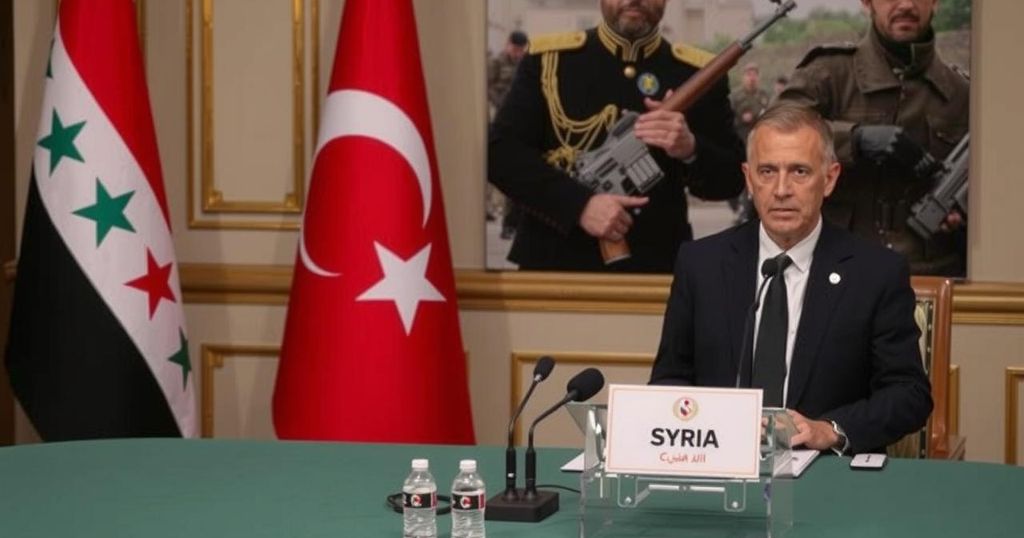In the days leading to his ouster, Syrian President Bashar al-Assad accused Turkey of supporting Sunni rebels attempting to overthrow him. Iranian officials reported that Assad raised these concerns during a meeting with Iranian Foreign Minister Abbas Araghchi. The geopolitical implications of Turkey’s actions reflect tensions between Iran, Turkey, and the interests of the U.S. and Israel, particularly as Assad’s potential downfall could significantly alter the balance of power in the region.
In the concluding moments preceding his exile, Syrian President Bashar al-Assad expressed to Iranian Foreign Minister Abbas Araghchi his grievances regarding Turkey’s support for Sunni rebel factions, which aimed to overthrow his regime. Iranian officials revealed this communication, indicating that Araghchi reassured Assad of Iran’s unwavering backing. The subsequent day, he held discussions with his Turkish counterpart, Hakan Fidan, articulating Iran’s profound discontent with Turkey’s collaboration with opposition groups. This discord highlights the complex geopolitical dynamics, with the U.S. and Israeli interests allegedly influencing Turkey’s actions against Assad. Ultimately, the downfall of Assad significantly undermined Iranian influence in the region, as Tehran had heavily invested in supporting his regime throughout the civil conflict.
The context of this article revolves around the civil war in Syria, which has persisted since 2011, significantly affecting regional politics and alliances. Bashar al-Assad’s government, backed by Iran and Hezbollah, faced formidable opposition, including the Sunni rebel group Hayat Tahrir al-Sham (HTS), leading to a power struggle keenly observed by other global players. Turkey, a NATO ally, has actively opposed Assad’s rule while supporting various rebel factions, compounding tensions in an already fractured political landscape. The collapse of the Assad regime represents a critical pivot point in the geopolitics of the Middle East, particularly regarding Iranian ambitions and alliances.
In summary, the events surrounding Bashar al-Assad’s communication with Iranian authorities reveal a significant deterioration in Assad’s stance against external pressures, particularly from Turkey. The conversations illuminate the broader geopolitical ramifications of the Syrian civil conflict, where alliances and enmities are continually reshaped. Iran’s long-standing commitment to maintaining Assad has raised concerns about the stability of its regional influence, particularly following a potential loss of its strategic ally in Syria.
Original Source: www.voanews.com







